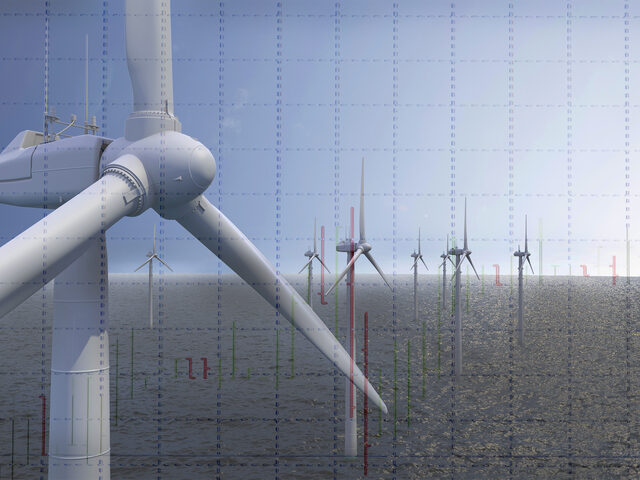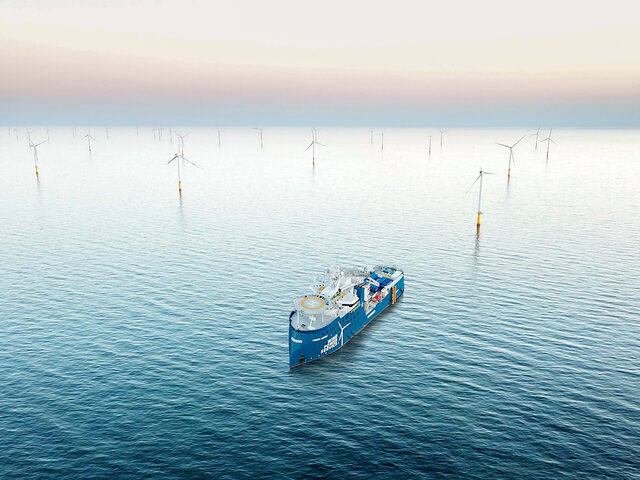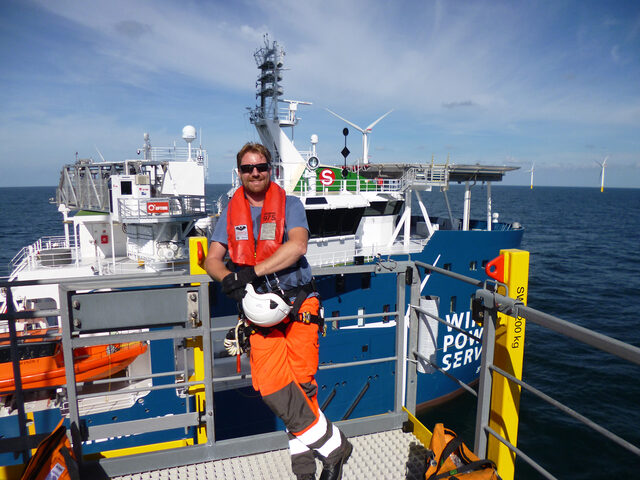How walk-to-work has transformed offshore wind services
The walk-to-work ability of modern service ships for far-from-shore offshore wind farms has revolutionised the work day of the technical crew. The modern-day transfers are done in a safe, efficient manner, and the service technicians can return to their high-standard accommodation vessel at the end of every work day.
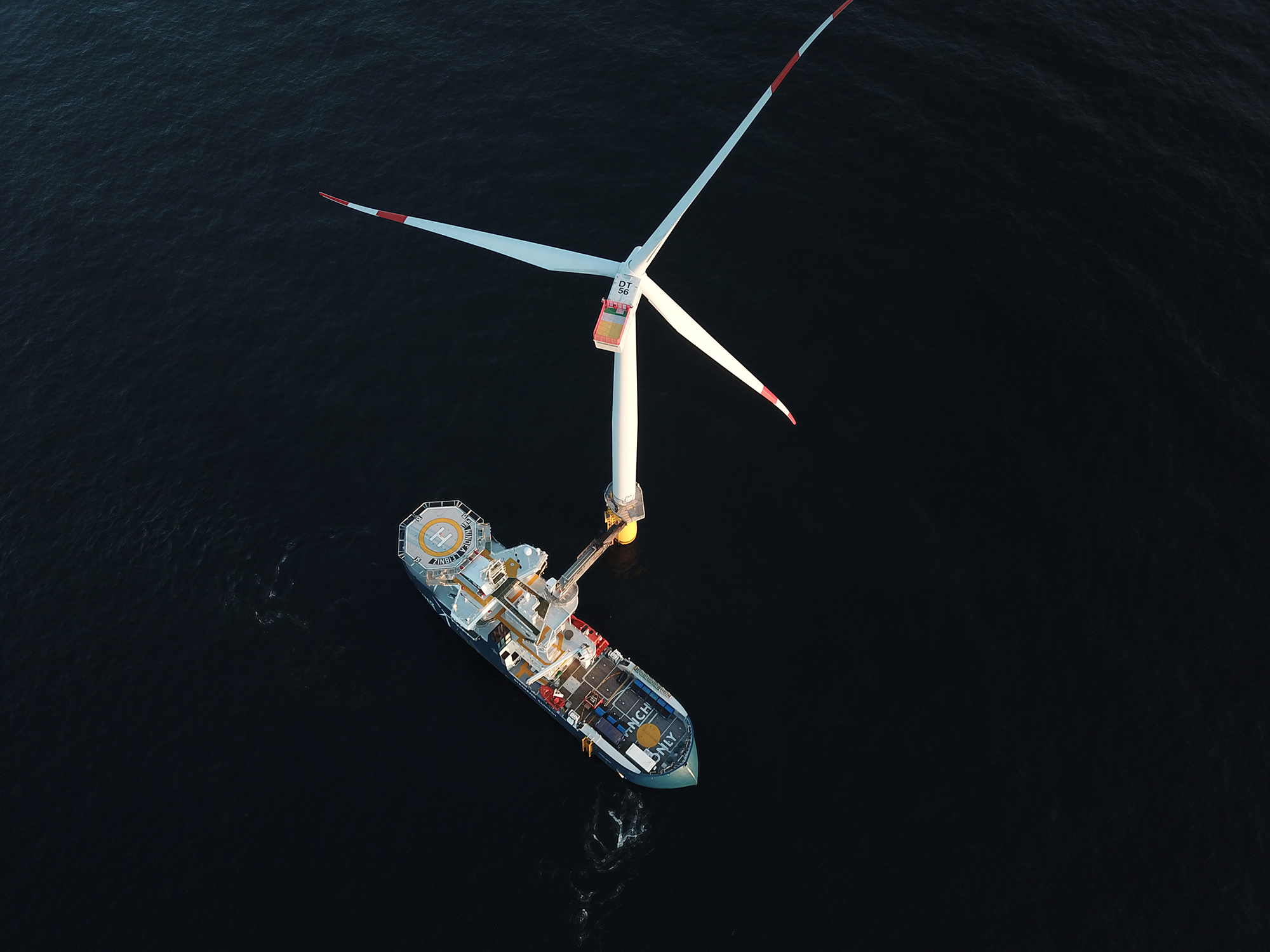
Before the introduction of the active motion-compensated personnel transfer gangways, the technicians were mostly transferred via small crafts to the turbines, at which they had to climb up a ladder. Wave conditions restrict these types of transfers.
With the W2W gangways, service can be carried out in heavier seas. Operational days have increased by weeks, even months, per year.
This said, transfer by use of Crew Transfer Vessels is still widely used, but as an add-on, as it increases an Offshore Wind Vessel’s capacity to service more turbines in one day.
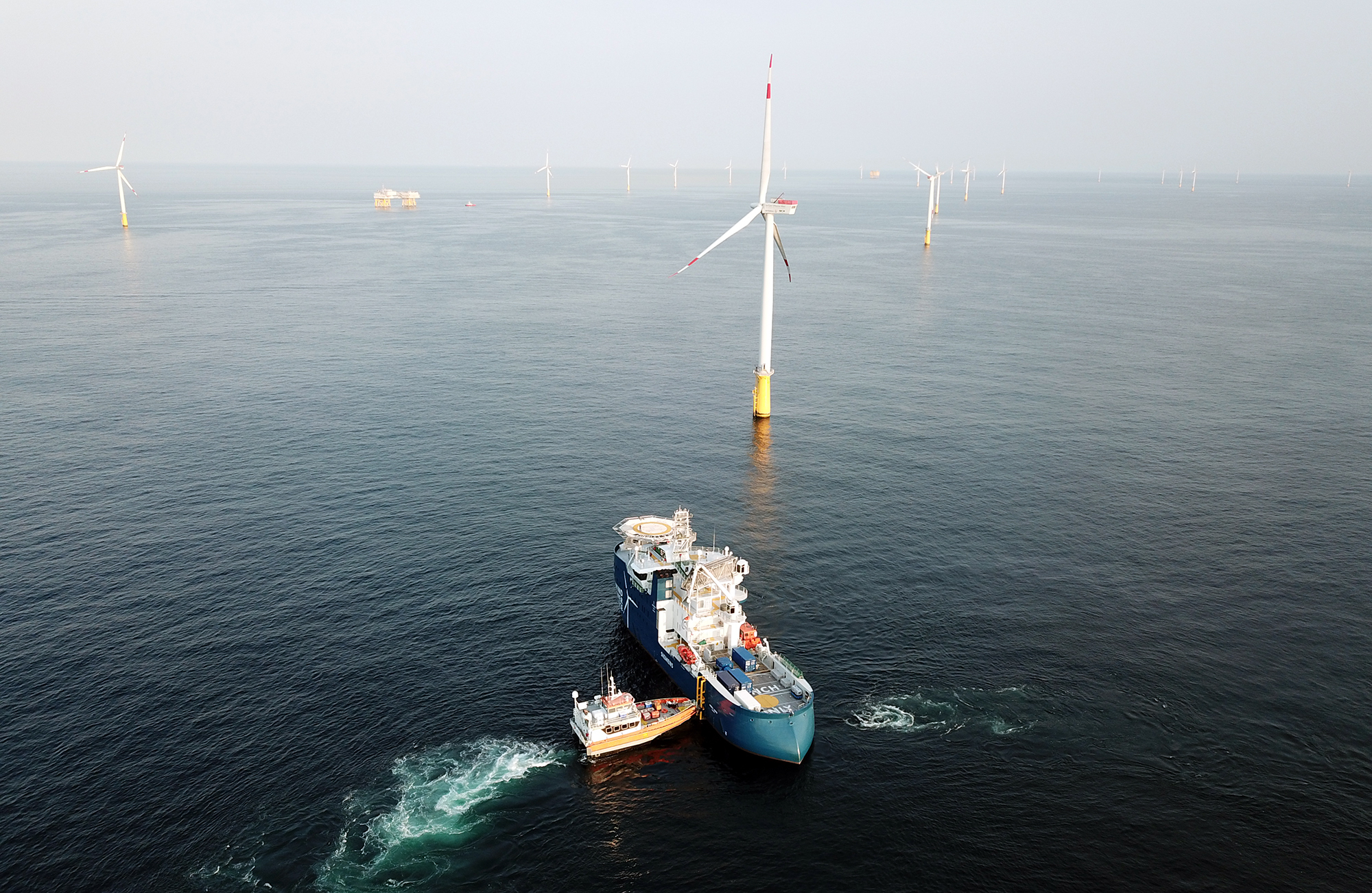
A large number of successful transfers
After 16 months of service, the SOV vessel Windea La Cour has completed several thousand successful transfers in the Gemini offshore wind park. “The vessel has proven to be very efficient, and the X-STERN and X-BOW reduce slamming and spray to keep up comfort,” commented Matthias Müller, managing director at BS Offshore.
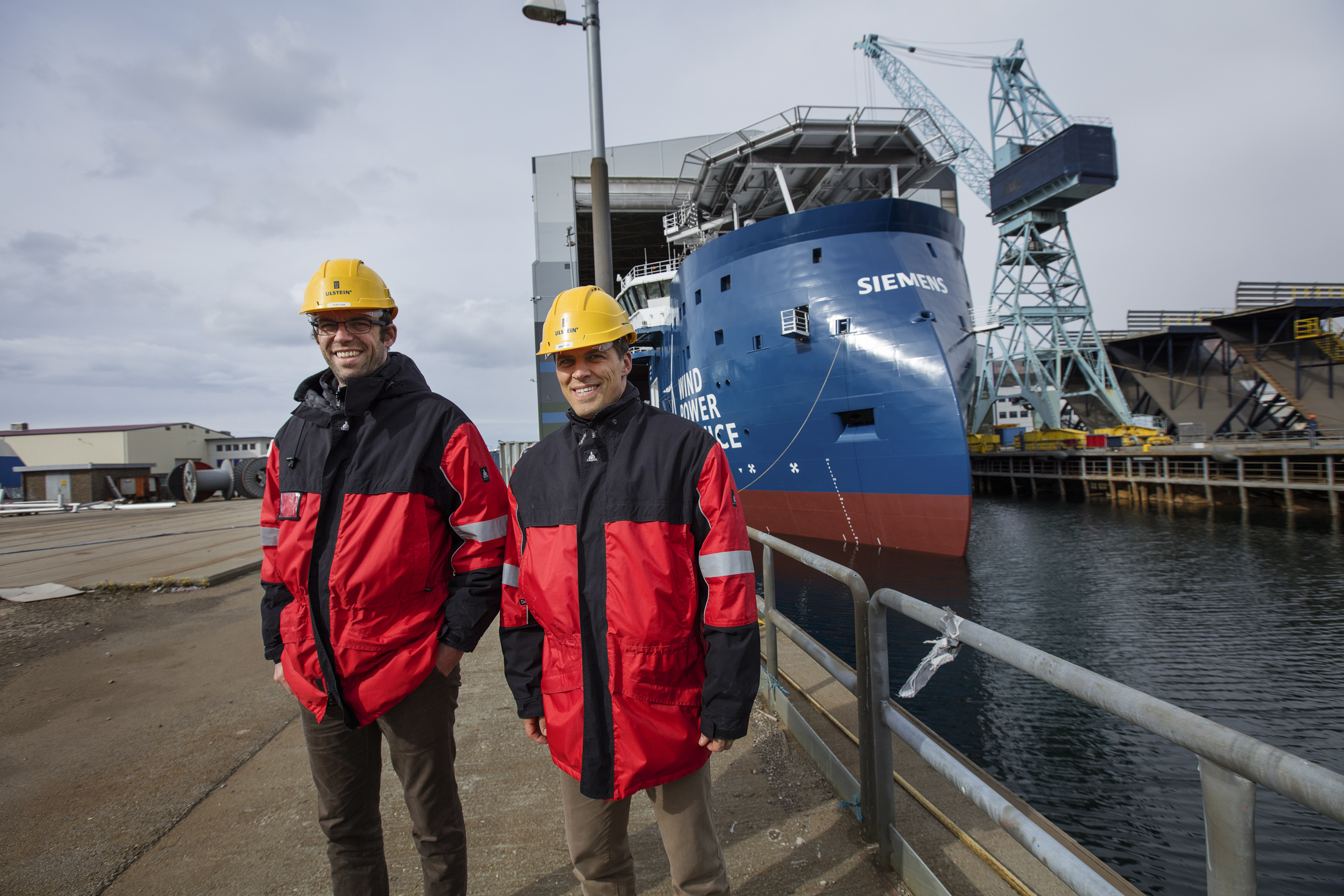
Andres Chacon, Technical Project Manager, and Matthias Müller, Managing Director in Bernhard Schulte Offshore GmbH attended the launching of the Windea La Cour at Ulstein Verft. (Photo: Marius Beck Dahle).
Technicians have fortnight shifts
As the Offshore wind farms are being established further from shore, overnight stays are necessary. The Service Operation Vessel (SOV) Windea La Cour is home to some 40 technicians for two successive weeks. This vessel alone services the 150-turbine offshore wind farm Gemini off the Netherlands and the vessel has been chartered by Siemens on a 15-year maintenance contract, lasting till 2031. The technicians bring their pre-packed lunch and stay on the turbines until their shift is over or the maintenance on this turbine is completed and they need to be transferred to another one. The work day is long and can be intense; If the weather allows it, the technicians work up to 12 hours a day, 14 days in a row.
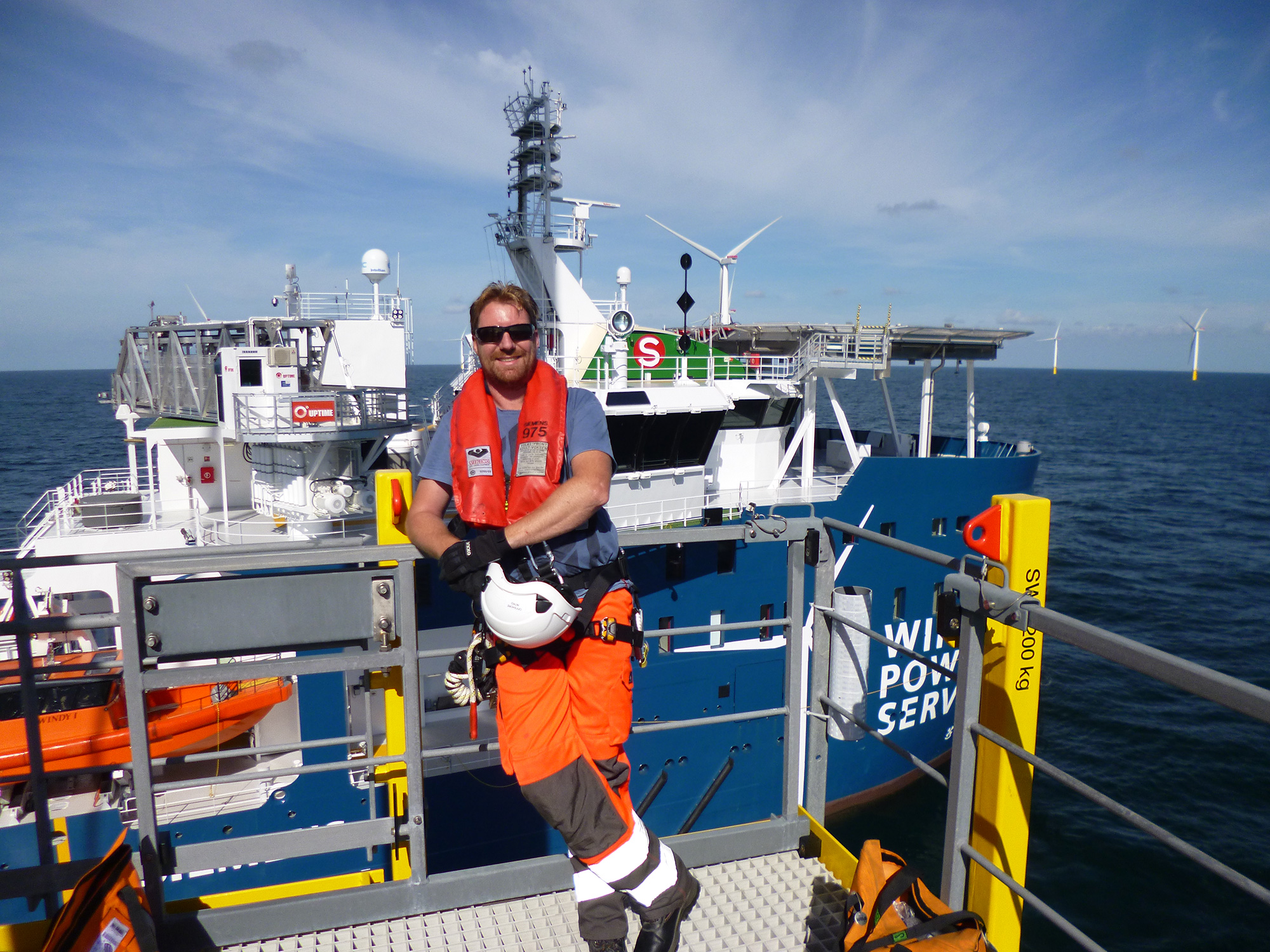
Planning & Cost Engineer Guido de Groot at the Gemini Offshore Wind Park. Photo courtesy of Gemini.
On-board spare part supplies
A necessary part of the job for the service technicians is to wait for the delivery of spare parts. Nowadays the vessel carries almost everything needed to maintain the wind park. Having detected what spare part is needed at the turbine, the technicians call up the vessel, and in less than one hour, the spare part will have arrived. If in very rare cases, the spare part is not carried on the vessel, the daughter craft can be sent to the Eemshaven base, some 85 kilometres away, to pick it up. Every 14 days, the vessel returns to Eemshaven to change the team of technicians, and to fill up supplies.
High standard keeps up spirits after long shifts
Returning to the vessel at the end of a long day, the high comfort on board soothes the body and mind. Everyone has single cabins, with heated bathroom floors, and their own satellite tv. There is no noise from the engines to be detected in the cabins. The BLUEDRIVE PlusC™ electric propulsion system from Siemens, combined with the X-BOW fore part and X-STERN aft from Ulstein, help in keeping the noise, vibrations and movements low.
Food is the hub
The mess is the natural hub for the people on board. Hot meals are served twice daily, and food and sweets are readily available. The high-class chefs and the delicious food, and the gathering around the dinner table, are very important aspects of the social life on board. The vessel also offers a cinema, a spacious and well-equipped gymnasium, an outdoor Jacuzzi and a sauna for the ultimate relaxation. The high-class comfort is important for everybody working – and living – half the year on board the vessel.
Please contact us for more information
Contacts
Companies
-
Ulstein Design & Solutions AS
P. O. Box 278,
Tel: +47 7000 8000
NO-6067 Ulsteinvik
Norway -
Ulstein Verft AS
P. O. Box 158,
Tel: +47 7000 8000
NO-6067 Ulsteinvik
Norway
